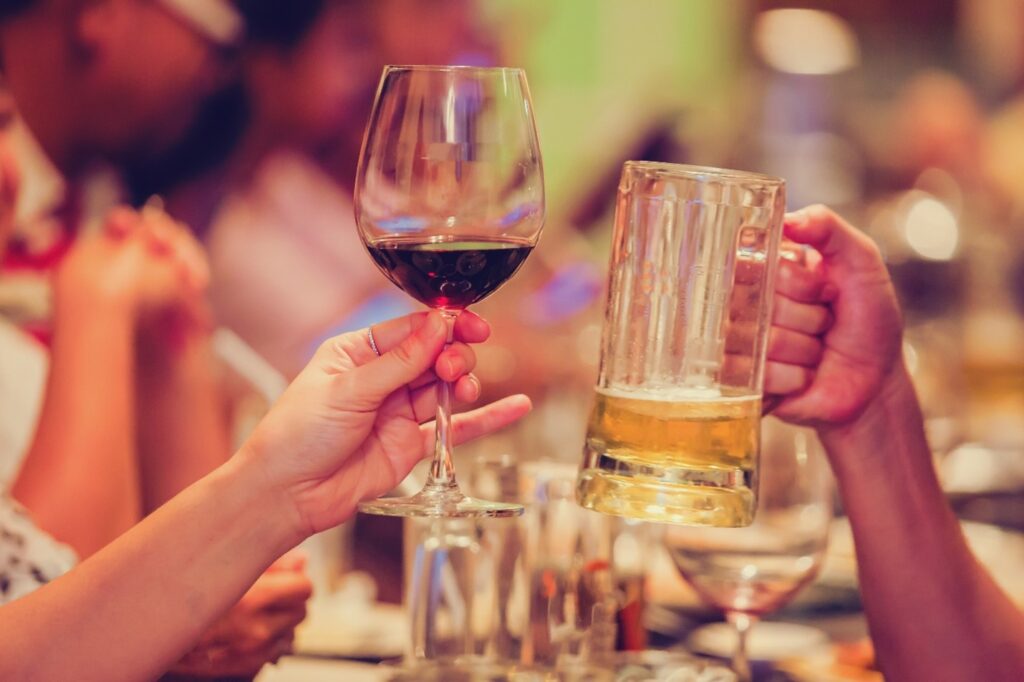
By Peyton Majors
Christian Action League
December 9, 2022
Most Americans don’t know of the link between alcoholic beverage consumption and cancer even though “conclusive” research has found a connection, according to a new report.
The study, published in the journal Cancer Epidemiology, Biomarkers & Prevention, noted that scientists have linked the drinking of alcohol to seven cancer types, including cancers of the breast, mouth and colon. The link involves any beverage that contains ethanol, which includes wine, beer and liquor.
“This study’s findings underscore the need to develop interventions for educating the public about the cancer risks of alcohol use, particularly in the prevailing context of national dialogue about the purported heart health benefits of wine,” said senior author William M.P. Klein, associate director of the National Cancer Institute’s Behavioral Research Program.
The study found that 31.2 percent of U.S. adults are aware of the alcohol-cancer link for liquor, with fewer being aware of the connection for beer (24.9 percent) and wine (20.3 percent). One in 10 adults (10 percent) say they believe wine decreases cancer risk, while 2.2 percent believe that about beer and 1.7 percent about liquor.
More than 50 percent of Americans say they didn’t know that consuming alcoholic beverages increases one’s cancer risk.
Each year, alcohol contributes to more than 75,000 cancer cases and nearly 19,000 cancer deaths, according to the report.
An education campaign is needed to raise “awareness that drinking all alcoholic beverage types increases cancer risk,” the study said.
A July news story from Fox News, for example, discussed the potential minor health benefits of wine for those over the age of 40 — if it’s a small amount — but did not reference any cancer risks.
“All types of alcoholic beverages, including wine, increase cancer risk,” Klein said.
The authors suggested that the public could be educated through mass media campaigns, cancer warning labels and doctor-patient interaction.
“Educating the public about how alcohol increases cancer risk will not only empower consumers to make more informed decisions, but may also prevent and reduce excessive alcohol use, as well as cancer morbidity and mortality,” Klein added.
The report examined data from the 2020 Health Information National Trends Survey which involved responses from 3,865 adults. Participants were asked, “In your opinion, how much does drinking the following types of alcohol affect the risk of getting cancer?”
“Alcohol is a leading modifiable risk factor for cancer in the United States and previous research has shown that most Americans don’t know this,” said the study’s lead author, Andrew Seidenberg, who conducted it while working as a cancer prevention fellow at the National Cancer Institute.
“I think studies such as this one clearly shows what we old-fogey, determined to keep people from ever having any fun, conservative Christians, have been saying for decades: ‘The person who drinks a little is still drinking too much,’” said Rev. Mark Creech, executive director of the Christian Action League. “There are more studies of this nature appearing with increasing rapidity. So, I ask: Who is actually being relevant? How long will people keep believing the tired lies of the alcohol industry? Like Thomas Edison said, ‘To put alcohol in the human system is like putting sand in the bearings of an engine.’”
